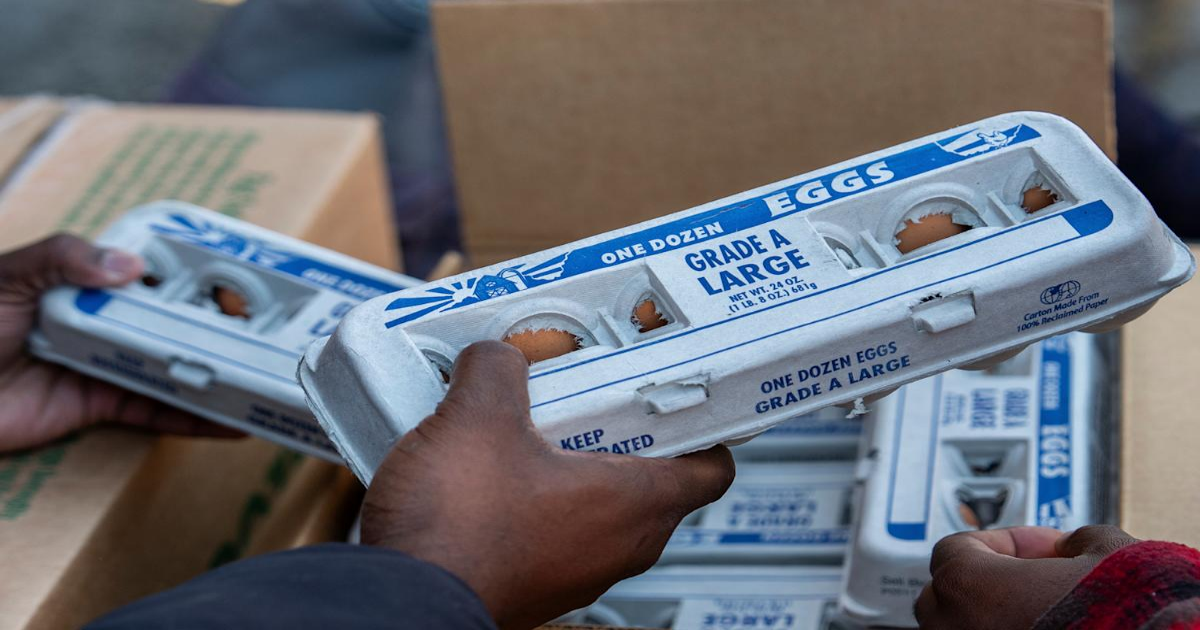During his Rose Garden address Wednesday announcing sweeping new global tariffs aimed at reducing America’s reliance on imports, President Trump took a couple rhetorical detours to praise his administration’s recent work on bringing down the price of eggs.
“They were going through the sky, the egg prices. They were going through the sky, and you did a fantastic job,” he told Secretary of Agriculture Brooke Rollins, who was sitting in the audience.
Coming in the middle of a speech about trade protectionism, it was a somewhat ironic aside: Much of Rollins’ effort has, in fact, involved importing less expensive eggs from countries now facing higher tariffs in order to ease the domestic supply crunch that sent grocery store prices soaring.
Learn more: What Trump’s tariffs mean for the economy and your wallet
In February, Rollins announced a $1 billion action plan for bringing egg costs under control, which largely consisted of longer-term policy initiatives aimed at combating the avian flu that has decimated hen flocks. Those included new biosecurity measures, such as sending out epidemiologists to advise farmers on disease risks at their farms; exploring new bird vaccines; and removing regulatory burdens that hinder egg production.
Rollins’ main short-term move, however, was to begin importing more eggs on a temporary basis. In late March, Rollins announced that the administration would begin purchases from South Korea and Turkey. Polish and Lithuanian officials also said they had been approached by the administration.
“We are talking in the hundreds of millions of eggs for the short term,” Rollins said. “And then when our chicken populations are repopulated, and we’ve got a full egg-laying industry going again — hopefully in a couple of months — we then shift back to our internal egg layers and moving those eggs out onto the shelf.”
During his speech, Trump said that prices had come down by more than half, thanks to Rollins’ work. That might only be half true, according to experts.
Since the first week of March, the wholesale cost of white eggs has come down by about 56% to $3 a dozen, according to the Department of Agriculture’s weekly data. However, the drop likely has less to do with the administration’s work than with a decrease in demand from consumers who’ve been stung by the steep price of an omelette, said David Anderson, a professor of agricultural economics at Texas A&M University.
“I think the administration’s efforts on the egg front are good moves,” he said. “But I think they are more long-term boosts in nature.”
